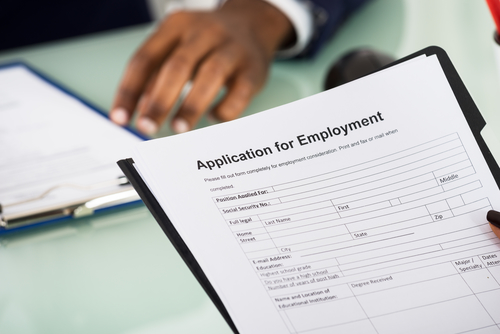The Art of a Job Interview When You Have Asperger’s
I left school in 1994 and had my first job interviews in the same year. I was, like most Aspies both then and now, full of nerves fueled by a strong desire to make the right impression. What I hope to do here is outline what I did to overcome them and what helpful advice I was given, which will hopefully also be of use to you. My very first interview was in a hotel in my hometown. My mother had a wee word with me the night before. Mum’s advice was very well-intentioned — keep your answers short, don’t mention any of your difficulties and make yourself come across as the best person for the job (some kind of receptionist-cum-general-dogsbody). So, off I went, smartly dressed, quite nervous and determined to make a good impression.

This article originally appeared on the Aspergers Test Site
Always keep a little bit of your brain aside to expect the unexpected (I know that’s a big ask for an Aspie and may even provoke more anxiety but it’s a fact of life and we can all handle the unexpected with the right coping strategies).
Experience Number Two —a café in Edinburgh, where I went for a job as a cleaner.
I will, no doubt, in the fullness of time, devote a full and frank article to my many and varied experiences in this job. Suffice it to say that it was not a happy experience, but I learned a lot from the interview. Closed question followed closed question. Have you done this kind of work before? Are you able to work the hours as advertised? When can you start? Danger signs should have been flashing, but, as usual, they were not.
I was not picking up on the signs being given to me by my interviewer. This is most definitely not a good thing. I got the job. What I also got was one very valuable lesson — pick up on the bits in-between the words of your interviewer. How desperate are they to get someone — anyone — into the job? Why are they so keen to have it filled quickly? How interested are they in you and what you can bring to the job?
The best interviews, as I have discovered subsequently, are conversations, subtly steered by the interviewer, to test you and get the responses they want. You need to be prepared.
You also need to be prepared for the unexpected. What should happen? What should be asked? Why didn’t certain things happen? These are all questions you need to keep in mind before, during and after an interview.
Now we are going to move forward 14 years. I am now 30.
A graduate of Abilene Christian University, Jennifer had a long career in TV Broadcasting. Upon learning her oldest son Sam had a form of Autism called Asperger’s Syndrome, she left her career and became a full-time mother to both of her sons. Jennifer elicited the participation of her family and together they produced several independent programs including a children’s animated series titled Ameriquest Kids, as well as a documentary and book titled, Coping to Excelling: Solutions for School-age Children Diagnosed with High-Functioning Autism or Aspergers Syndrome. She formed the nonprofit Asperger101 to provide on-going free resources related to ASD at Aspergers101.com and has implemented the Texas Driving with Disability Program and continues to grow the statewide initiative today. She and her husband have recently retired to their property in the Texas Hill Country.
